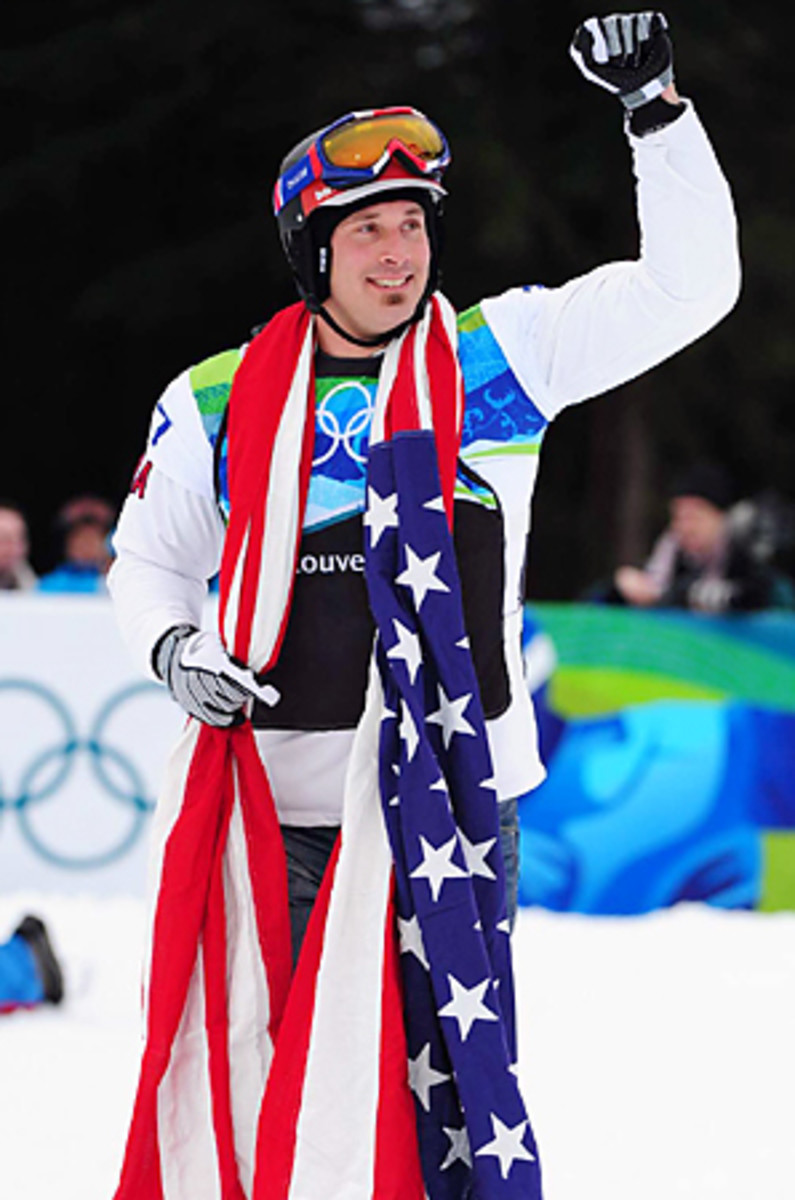Improbable rally provides golden moment as Wescott repeats
Robertson had been rocketing out of the gate all day. Through three rounds of heats he was the Usain Bolt of this competition, getting better starts than anyone else. Now, under leaden skies at a venue so jinxed that one VANOC official had dubbed it the "special child" of these Games, he burst to another early lead, and for the longest time wasn't letting go of it. Nate Holland, Wescott's teammate, caught an edge trying to set up a pass of Roberston about halfway down the track, and went spinning out of the medals. Robertson, the lanky 24-year-old from Canmore, Alberta, was now on the brink of rinsing away much of the negative press Cypress Mountain had come in for, just as pelting, Old Testament rains had rinsed away so much of the venue's snow.
All over Canada, Robertson's countrymen (and countrywomen) had to be thinking the same thought: This thing's in the bag. Truly, all he needed to do was remain upright -- not necessarily a sure thing on a track that had been variously described, on the eve of the finals, as "rutted," "soupy," "chewed up," "chunky" and "tricky."
Just as the home crowd had allowed itself to believe the race was over, just as its roar reached full throat, filling this valley, spectators paying close attention experienced an unsettling moment. The gap between Robertson and Wescott seemed to come down a tiny bit.
Sharing the stage at the team's introductory press conference with Graham (Pegasus) Watanabe and Nate (The Dude) Holland ("I'm sorry I spaced a little bit," quoth Holland at one point. "What was the question?") Wescott radiated an almost grandfatherly presence. Toward the end of the session, he allowed as how, well into his second decade in the sport, "it can be kind of hard to find that fire to be super-motivated," week in, week out. In that moment, he sounded tired. He didn't sound like a particularly legitimate threat to repeat as the gold medalist.
Wescott raced sparingly this season. His body needed the break. A year and a day after winning gold in Torino, he shattered his left forearm at a race in Japan. To this day, he's walking around with 13 screws and a plate in that limb. In December he'd begun to flash his former speed when he landed awkwardly off a jump in Telluride, jamming his right femur up into his hip joint. That spill was the first in a sequence of injuries that nagged Wescott right up to the Winter X Games, where he came a close second to Holland, and finally felt, as he put, "like I'm firing on all cylinders."
"The speed is there," he told me in a phone conversation last Saturday night. "Now it's a matter of using the extra emotion, the extra motivation that comes with the Olympics, to see what I can do."
He cruised through three heats on his veteran's guile, drafting off unsuspecting riders until such time as he saw fit to pull out of their slipstreams and put them away. His problem in the final was that Robertson was so far up the road, so to speak, there was no slipstream in which to stow away. With victory all but assured, though, it seemed that the younger rider started racing a little more conservatively.
Catapulting out of the sixth of the course's seven banked turns, Wescott sailed over the next features -- two jumps, a double and a triple -- stomping the gas to such an extent that he cut Robertson's lead in half. After bobbling the landing ever so slightly on the penultimate jump -- "I missed it a little bit, and he nailed it perfectly"-- the Canadian rider "took a safer line on the seventh turn," said Peter Foley, the head coach of U.S. Snowboarding, "and Seth went inside him."
With the finish in sight, Wescott grabbed the gold medal from around the younger man's neck. (That said, I loved Robertson's attitude afterward. Asked if he was disappointed, he shot back: "Disappointing? It's not disappointing at all. I just won a silver medal in Canada.)
To those of us who do not make a habit of attending snowboardcross races, there remained some uncertainty: did this sort of thing happen all the time? Was Wescott's rally as outrageous as it appeared to the naked eye? The answer is yes. "For him to close that kind of gap, where he did it on the course, was absolutely remarkable," declared Foley, incredulous himself an hour after the race's end.
That's why Wescott was embraced by Holland, who was completely stand-up and in defeat. "If I'm going to wreck," he said, "I might as well wreck battling for the Olympic gold."
It's why Wescott was taken down in a textbook form tackle by Watanabe, who had leapt over the barricade, and who screamed in his face, "Great job!"
It's why a bar in Carrabassett Valley, Maine -- a public house called The Rack, which happens to be co-owned by Wescott, went good and truly off the hook.
Despite the grind of the World Cup circuit, Wescott had confided two nights earlier that he has no intention of walking away from this sport anytime soon. "I'm gonna have to start training a lot harder than I have been, I guess," he said. "And I'm cool with that. I think I'll just start picking and choosing my races a little more. And if things go my way, I can do it again in 2014."
That's right, Wescott will be gunning for the three-peat in Sochi, Russia, four years hence. You think he looks like an elder statesman now ...
It turns out he isn't tired. He's just pacing himself.





